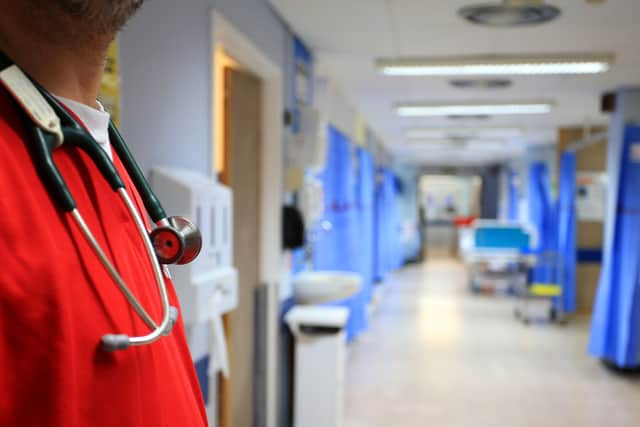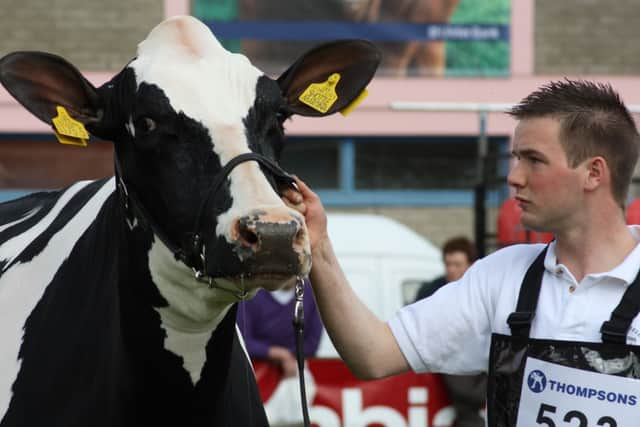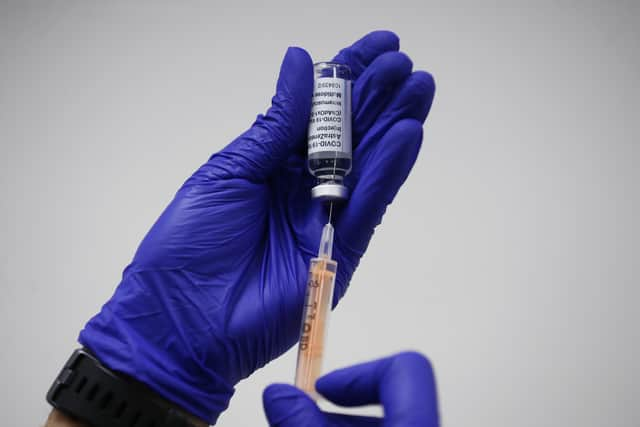One additional death and more than 1,000 new infections in last 24 hours
and live on Freeview channel 276
For more on this story, please scroll down.
LIVE UPDATES: Coronavirus NI - One additional death and more than 1,000 new infections in last 24 hours
Key Events
- Balmoral Show 2021 organisers announce ‘Covid-19 status’ will be condition of entry
- JCVI to recommend extending Covid-19 vaccination programme to all 16 and 17 year-olds
One additional death and more than 1,000 new infections in last 24 hours


One further death of a patient who had tested positive for Covid-19 has been reported in Northern Ireland.
The Department of Health said there had also been 1,040 new confirmed cases of the virus in the last 24-hour reporting period.
On Wednesday morning there were 226 Covid-positive patients in hospital, of whom 38 were in intensive care.
Balmoral Show 2021 organisers announce ‘Covid-19 status’ will be condition of entry


Anyone hoping to attend the 2021 Balmoral Show next month will have to declare their "Covid-19 status" before they can enter the annual agricultural showpiece.
In a statement on the official Balmoral Show website, the organisers said attendees will have to meet one of the three following requirements.
“The 2021 Balmoral Show in partnership with Ulster Bank will take place from Wednesday 22nd September - Saturday 25th September.
“This year, in line with our COVID-safety measures all tickets will need to be purchased in advance online. All tickets will be day specific only.
“Tickets are now on sale.
“It is a condition of entry that everyone will need to demonstrate their COVID-19 status on entry by providing either:
“Proof of full vaccination- both doses received ( with the second at least 14 days prior to the event) or
“Proof of a negative NHS Lateral Flow Test taken no more than 48 hours prior to your arrival at the event (including children 11 years and older).
“Proof of natural COVID antibodies based upon a positive PCR test within 180 days of the event ( including 10 days self-isolation following the result).”
16 and 17 year-olds in Northern Ireland could be offered Covid-19 vaccine within the next few hours


The Executive is expected to rubberstamp offering a Covid-19 vaccine jabs to all 16 and 17 year-olds in Northern Ireland within the next few hours.
Offering a Covid-19 vaccine to 16 and 17-year-olds could reduce transmission of the virus and limit disruption to their schooling, experts have said.
The Joint Committee on Vaccination and Immunisation (JCVI) is expected to make a recommendation on extending the vaccination programme “imminently”, officials have said.
Once approved by ministers more than a million more teenagers will be eligible to get a vaccine.
The latest data from the React study, tracking Covid-19 in the population, showed that younger people had driven a recent surge in infections in England, and scientists said extending the vaccine programme would reduce transmission and limit the spread of the virus in winter months.
Asked about giving 16 and 17-year-olds a vaccine, Steven Riley, professor of infectious disease dynamics at Imperial College London and co-author of the React study, told LBC: “Our data would support that in that we’d expect there to be a really good knock-on effect from extending the vaccinations for that group.”
Offering a vaccine to children age 12 and over “would also reduce transmission”, he added.
He said: “What we should probably think about is September, October, November: how much immunity can we have in order to hopefully keep prevalence going down, so there is justification in extending those vaccinations down.”
Professor Paul Elliott, director of the React programme, and chairman of epidemiology and public health medicine at Imperial, told BBC Radio 4’s Today programme: “The big increase in the virus was being driven by these younger age groups, so anything we can do to reduce transmission in that group would be helpful.”
Geoff Barton, general secretary of the Association of School and College Leaders (ASCL), said extending the programme would reduce disruption to schooling.
“Anything that gives the reassurance to young people that they are being treated in the way that the adult population is and that their education won’t be disrupted to the extent it has been – that has to be welcomed,” he told the Today programme.
“I’m sure many parents, with their youngsters, will think at last we’re starting to give a real sense of priority to young people’s education.
“I think that generally… young people feel they’ve been let down educationally. If this is one way we can get rid of that disruption I think we will see a great sense of a lot of young people, not all, but a lot of young people thinking, ‘Actually, I’m going to have the vaccine, just like my mum or my dad has’.”
Universities minister Michelle Donelan said ministers were expecting an announcement from the JCVI “imminently”.
She told Sky News: “We are waiting for the JCVI announcement. At every stage throughout the pandemic we’ve adopted their advice on this. They are the experts, of course, when we’re
determining the vaccine rollout and we’ll await their imminent announcement shortly.”
Under existing guidance some under-18s are eligible for a jab if they have certain health conditions, live with someone who is immunocompromised, or are approaching their 18th birthday.
NHS data shows 223,755 under-18s in England have already received a first dose.
Around 1.4 million 16 and 17-year-olds will be eligible when the programme is extended.
They are expected to receive the Pfizer vaccine, which has been approved for use in the UK for people aged 12 and over.
On Tuesday, Scottish First Minister Nicola Sturgeon told the Scottish Parliament: “We are waiting on JCVI advice. When I say ‘we’, I am obviously referring to the Scottish Government, but the UK, Welsh and Northern Irish governments are in the same position.”
Ms Sturgeon also outlined how laws on the wearing of face masks would stay in place when many of Scotland’s other remaining coronavirus restrictions are lifted on August 9.
She said the requirement to wear masks will remain for “some time to come”.
But close contacts of people who test positive for Covid will no longer be required to automatically self-isolate for 10 days under the new Scottish system.
A double-vaccinated Scot who has at least two weeks since their last dose will be able to take a PCR test that would allow them to abandon self-isolation if they test negative.
Similar changes will also be brought in for Wales on Monday, but England will have to wait another week – until August 16 – for self-isolation rules to ease.
Updated guidance on travel is also expected in coming days.
Reports suggested a number of countries including Germany and Austria are due to be added to the green list of travel restrictions, while Spain could avoid the red list – the most stringent measures.
Asked if people should stay at home for holidays this year, Ms Donelan told Sky News: “No, some people have planned some fantastic holidays to countries, including green-list countries.
“We will get that update… this week from the Department for Transport as to what the latest iteration around the traffic light system (is), as we do every three weeks. Also there are some fantastic and amazing places to holiday here in the UK… I would strongly advocate that a staycation is a good option this year, just as going abroad is too.”
Comment Guidelines
National World encourages reader discussion on our stories. User feedback, insights and back-and-forth exchanges add a rich layer of context to reporting. Please review our Community Guidelines before commenting.
